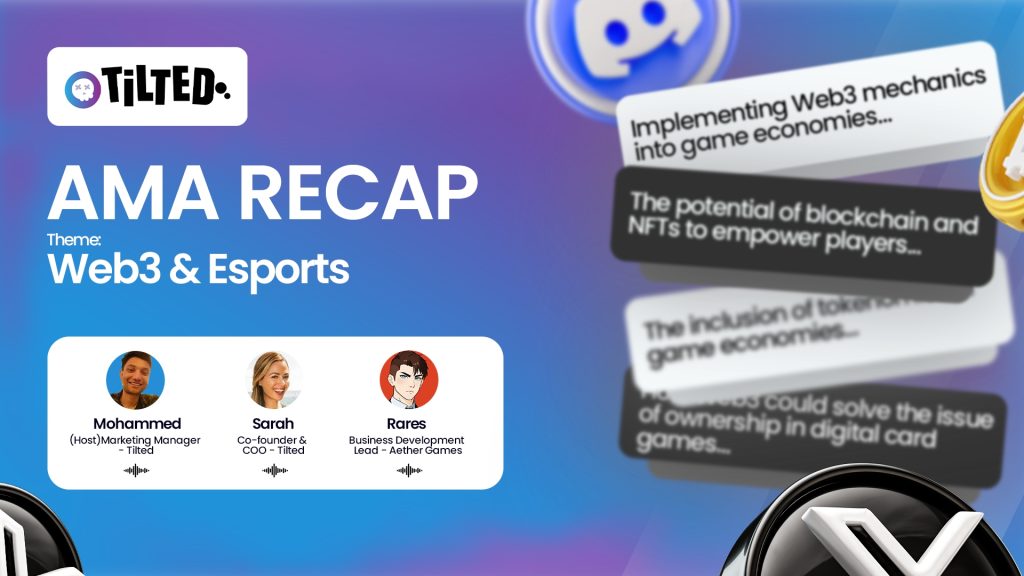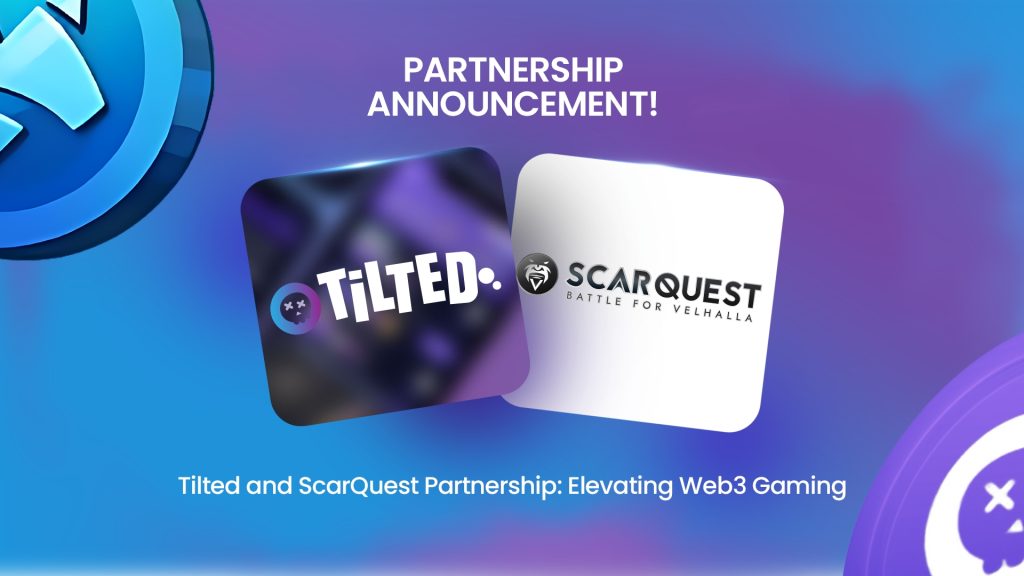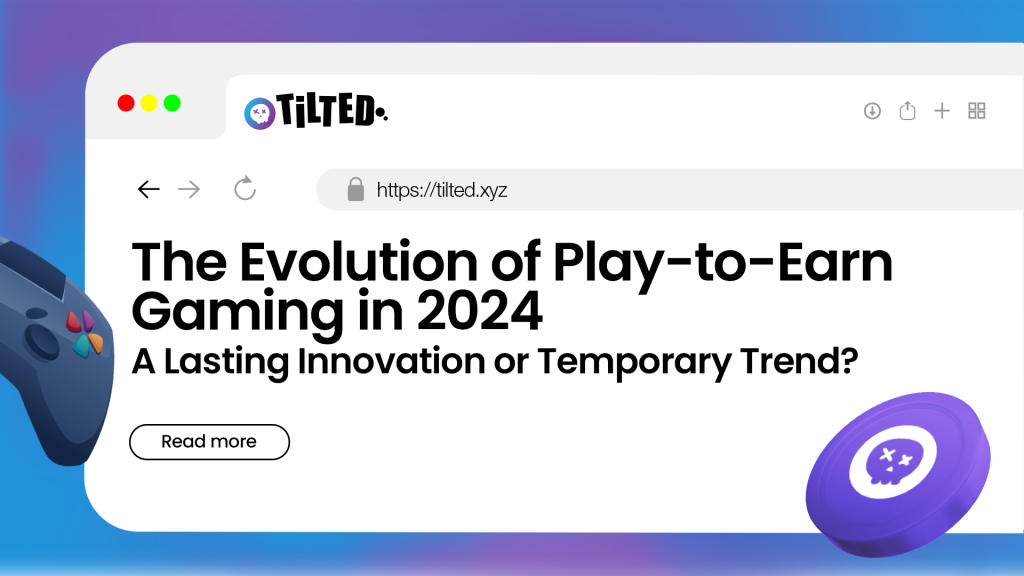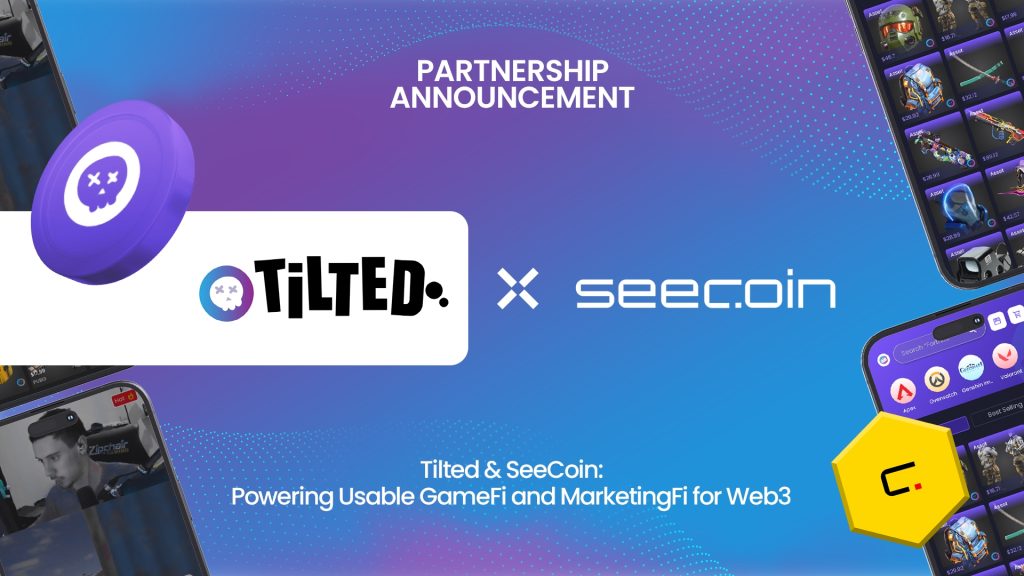Introduction:
In our latest Twitter Space, we had an engaging and insightful conversation with some of the brightest minds in the Web3 and gaming space. The session focused on the intersection of Web3, esports, and game economies, a topic that’s becoming increasingly relevant as the gaming world evolves.
We were joined by the following industry leaders:
- Mohammad, Marketing Manager at Tilted
- Sarah, Co-founder & COO at Tilted
- Rares, Business Development Lead at Aether Games
Key Takeaways:
The discussion began with a deep dive into the growing presence of Web3 in esports. While the initial focus was on the potential for Web3 to revolutionize the way esports operate, the conversation naturally evolved into a more specific topic — how implementing Web3 mechanics into game economies, like those of Path of Exile and Hearthstone, could significantly improve player experiences and financial models.
One key point was the potential of blockchain and NFTs to empower players by providing true ownership of in-game assets. This would allow players to trade and sell items in a decentralized marketplace, thus adding more depth to the game’s economy. For games like Path of Exile, which already features a robust item trading system, Web3 could bring an added layer of security and transparency, making transactions more efficient and trustworthy.
Another interesting aspect discussed was the inclusion of tokenomics in game economies. By integrating Web3, games could introduce tokens that have real-world value, allowing players to earn rewards that can be exchanged or reinvested within the game or on external platforms. This would create new revenue streams for both developers and players, and potentially lead to a more engaged player base.
The conversation also touched upon how Web3 could solve the issue of ownership in digital card games like Hearthstone. Many players of digital card games face limitations around ownership of their cards, as they are confined within the game’s ecosystem. With the advent of Web3, these card games could allow players to truly own, trade, and sell their cards outside the game, opening up new opportunities for monetization and enhancing the overall player experience.
Closing Thoughts:
As the conversation evolved, it became clear that integrating Web3 into the game economies of titles like Path of Exile and Hearthstone could create a more dynamic, player-driven ecosystem. From enabling true ownership of in-game assets to introducing decentralized financial models, the potential for Web3 in gaming is immense.
Join us for our next session to hear more insights from leading industry experts and stay updated on how Web3 continues to shape the future of gaming.



